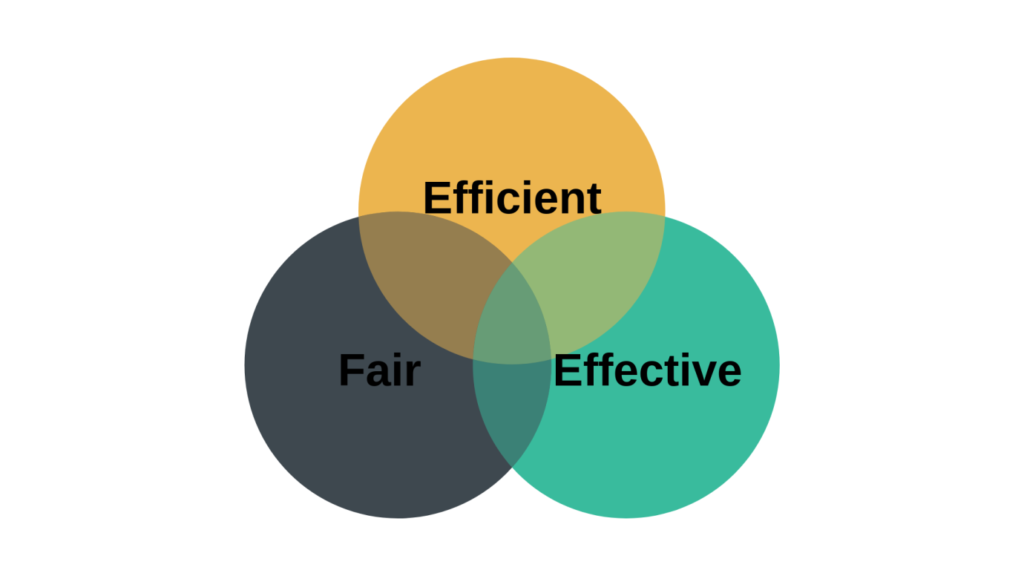The Ombudsman’s Annual Report 2018 was laid in Parliament today. Under the legislation, the Ombudsman is required to make an assessment in her report about whether the Service complaints system is efficient, effective and fair.
The Ombudsman’s Annual Report 2018 was laid in Parliament today. Under the legislation, the Ombudsman is required to make an assessment in her report about whether the Service complaints system is efficient, effective and fair. But what does that actually mean and why is it important?
It is not enough for a complaints system to simply exist, it must also be efficient, effective and fair. These three words embody the are the basic principles of complaint handling and are the essential elements of any successful complaints system.
But what it actually means can be confusing. There are three elements, but those elements are interlinked. They are considered on their own, each with a number of individual factors that must be considered, but they also overlap.

It requires careful judicious balancing in order to make a fair assessment. The Ombudsman sets out clearly in her report the issues that are considered and how the system as a whole, including SCOAF, is performing in each area.
| A complaints system is efficient when: |
|
| A complaints system is effective when: |
|
| A fair complaints system: |
|
The reformed complaints process is, without a shadow of a doubt, a much better system. It is a better-designed system with a greater level of flexibility and proportionality. This is something that the Ombudsman acknowledges and praises. However, in order to be efficient, effective and fair, it is not enough that the system is better than it used to be. It needs to, on balance, objectively meet all of the criteria.
No complaints system is perfect and errors can always be made in the handling of complaints, which is why organisations such as ours exist. The role of the Ombudsman is to help identify those errors and recurring issues and to make recommendations that help to improve the process overall.
It may sometimes feel like that improvement isn’t happening – after all, this is the 10th annual report to declare that the Service complaints system is not efficient, effective and fair. But it is important to remember that significant changes have been made since 2008 and that there is commitment, not only from SCOAF, but the MOD and the single Services, to ensuring there is a robust complaints system that performs to the level required to meet this assessment.
It may not be there yet, but it is closer than it has ever been and it is something that can, and must, be achieved.
You can read the Ombudsman’s full assessment in Chapter 1 of her Annual Report 2018 which is available on our website now.